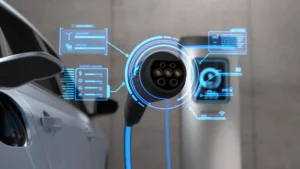
Home / EV Charging News / Electric Cars and Environmental Education Programs
As the world grapples with the urgent need for environmental sustainability, electric vehicles (EVs) have emerged as key players in the transition to cleaner transportation. Leveraging the potential of electric cars to educate communities and schools about environmental issues is a progressive approach. This article explores the initiatives that promote environmental education through electric vehicle awareness programs, fostering a deeper understanding of sustainability and inspiring positive change.
Electric cars, as symbols of sustainable transportation, offer unique opportunities to educate communities and schools about environmental responsibility. By integrating electric vehicle awareness programs into educational curricula and community-based initiatives, we can nurture a generation that values sustainability and makes informed choices for the benefit of the planet. These educational efforts are not only about promoting electric cars but also about fostering a broader understanding of the urgent need for environmental conservation in our communities and beyond.



